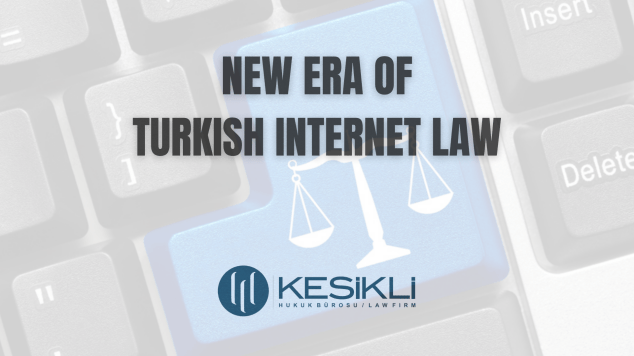Digital Marketing Law in Türkiye: Compliance and Opportunities
Introduction
As digital marketing continues to play an increasingly prominent role in the business world, it is essential for companies to stay compliant with relevant legislation. In Türkiye, several laws and regulations govern digital marketing practices, ensuring consumer protection and fair competition. This blog post will delve deeper into these laws and their implications, offering guidance on how businesses can capitalize on digital marketing opportunities while maintaining compliance with Turkish legislation.
- Law on the Regulation of Electronic Commerce (E-Commerce Law)
A more in-depth look at the E-Commerce Law reveals specific provisions that digital marketers must adhere to:
- Identification of commercial communications: All marketing materials must clearly indicate the commercial intent, with the sender's identity and contact information easily accessible. This includes sponsored content and native advertising.
- Opt-in and opt-out mechanisms: Businesses must obtain explicit consent from recipients before sending marketing communications. Recipients should be able to revoke their consent easily and without any costs.
- Recordkeeping: Companies must maintain records of consent, electronic transactions, and any other relevant documentation to demonstrate compliance with the E-Commerce Law.
- Personal Data Protection Law (PDPL)
To maintain compliance with the PDPL, digital marketers must adhere to the following principles:
- Lawfulness and fairness: The collection and processing of personal data must have a legitimate purpose and comply with the principles of good faith.
- Data minimization: Companies should only collect and process personal data relevant to their purpose and avoid collecting unnecessary information.
- Purpose limitation: Personal data should be used only for the purpose it was collected and not be further processed in ways incompatible with that purpose.
- Data retention: Personal data should be deleted, destroyed, or anonymized once the purpose for its collection and processing is fulfilled.
- Privacy by design and by default: Businesses should implement data protection measures from the outset of their digital marketing initiatives and ensure that privacy settings are set to the highest possible level by default.
- Law on the Protection of Consumers (Consumer Law)
To avoid violating the Consumer Law, digital marketers should consider the following:
- Substantiation of claims: Any claims made in advertisements must be supported by facts and evidence, with businesses responsible for proving their claims if challenged by authorities.
- Clear pricing and payment terms: Advertisements must clearly display the total price of products or services, including taxes, and provide transparent information about payment, delivery, and performance conditions.
- Intellectual property rights: Advertisements must not infringe on intellectual property rights, including trademarks, copyrights, and patents.
- Regulation on Commercial Advertisement and Unfair Commercial Practices
Digital marketers must be mindful of the following provisions under this regulation:
- Targeting and segmentation: Advertisements should not exploit the trust of vulnerable groups, such as children or the elderly, and should avoid encouraging dangerous or harmful behavior.
- Social media marketing: Influencers and endorsers must disclose their relationship with the brand or company they are promoting, making it clear when content is sponsored or paid.
- Use of cookies and tracking technologies: Websites and digital platforms must provide clear and transparent information about their use of cookies and tracking technologies, giving users the option to accept or reject them.
- Advertising Self-Regulation in Türkiye
In addition to the legal framework, it is important to note that Türkiye has an advertising self-regulatory body called the Advertising Self-Regulatory Board (RÖK). RÖK is responsible for promoting ethical advertising standards and rendering advisory decisions on the commitments regarding advertisements violating the ICC Principles. Membership in RÖK is voluntary, and the organization's principles are based on the International Chamber of Commerce's (ICC) Advertising and Marketing Communication Practice.
By adhering to RÖK's guidelines and principles, businesses can further strengthen their compliance with digital marketing legislation in Türkiye. Some key aspects of RÖK's self-regulation include:
- Ensuring that advertising content is honest, legal, decent, and truthful.
- Respecting human dignity and not promoting discrimination based on race, religion, gender, or nationality.
- Avoiding aggressive, intrusive, or offensive advertising that may harm the public's trust in advertising.
- The Importance of Compliance in the Age of Globalization
As the digital landscape continues to evolve, so too does the need for businesses to stay compliant with local and international regulations. With the increasing interconnectedness of the global market, non-compliance in one country can have far-reaching consequences for a company's reputation and bottom line.
By adhering to Turkish digital marketing legislation and self-regulation, businesses can avoid potential legal issues, protect their brand image, and maintain trust with both local and international consumers. This not only benefits the company but also contributes to the development of a transparent and competitive digital marketplace.
- Embracing Opportunities in the Turkish Digital Market
Türkiye's growing digital market presents numerous opportunities for businesses to expand their reach, engage with new audiences, and drive revenue growth. By implementing innovative digital marketing strategies that comply with Turkish legislation, companies can tap into the potential of this burgeoning market while fostering trust and credibility among their target audience.
Some strategies for capitalizing on digital marketing opportunities in Türkiye include:
- Leveraging social media platforms popular in Türkiye, such as Instagram, Twitter, and Facebook, to engage with consumers and build brand awareness.
- Utilizing search engine optimization (SEO) and search engine marketing (SEM) techniques to enhance online visibility and attract organic traffic.
- Exploring emerging technologies and trends, such as augmented reality (AR), virtual reality (VR), and chatbots, to create immersive and personalized customer experiences.
Conclusion
In conclusion, staying compliant with digital marketing legislation in Türkiye is vital for businesses to thrive in the country's rapidly expanding digital market. By understanding and adhering to the E-Commerce Law, PDPL, Consumer Law, the Regulation on Commercial Advertisement and Unfair Commercial Practices, and RÖK's self-regulatory guidelines, companies can effectively leverage digital marketing to drive growth while protecting consumer rights and maintaining a fair competitive environment.
Let's Get Connected!



